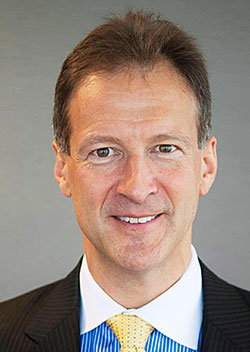St Germain: planner’s commission aversion pays off
Roula Khalaf, Editor of the FT, selects her favourite stories in this weekly newsletter.
St Germain Investment Management opened in 1924, five years before the beginning of the Great Depression. Surviving the crash helped create a disciplined approach to managing money that has guided the company ever since.
When St Germain, based in Springfield, Massachusetts, was faced with the financial crisis of 2007-08, Michael Matty, its president, along with the manager’s chairman, cut their own salaries by a third for six months. This helped the company avoid lay-offs and showed employees it would support them. Mr Matty says: “I told these guys that I will cut my salary to zero before I laid off anybody.”

“We’re in a business where the market level is generally correlated with the financials of our firm, and having the market down 38 per cent is as bad as it gets,” Tim Suffish, senior vice-president in charge of equity markets, says. “We told employees [in 2008] that we’ve been through bad markets before and we’ll do it again with whatever it takes.”
The crisis also reinforced the company’s mission of protecting and growing client assets without being swayed by market turmoil or hype.
St Germain manages about $1.1bn. It has built its client base mostly by word of mouth and retains fifth-generation investors whose great, great grandparents started with founder DJ St Germain.
The company pays staff a salary rather than using a commission structure. Mr Matty says this allows “guys in the trenches talking to clients to give very objective advice, including putting their money somewhere else”.
A salary is the only way to ensure clients receive honest and unbiased advice, he says. “When you know you have a bill to pay in the back of your mind and can make a 6 per cent commission by selling an annuity, it tilts the way you give advice,” Mr Matty says.
“The fact that you will be getting paid 20 times more than with another product has to be in the back of your mind.”
He stresses that remaining detached during the toughest of times will help the manager keep clients and make money. For example, the business found itself at odds with received wisdom in the 1990s during the dotcom bubble. Its advisers had to explain to clients why the company was raising cash when it thought the stock market was overvalued, he says.
“A big part of our job is to strip emotion away and to look at fundamental valuation of stocks,” Mr Matty says.
But one of the best ways to form a solid client base is to build loyalty within the firm, something the staff was reminded of when one of its longest-serving employees died in his 90s. Founder DJ St Germain had hired him as a gardener and promised that once he hit retirement age the company would keep paying him a regular salary, Mr Matty recalls.
“DJ told him ‘we will keep you on the payroll’, with nothing more than a handshake,” he says. “And that is what we did as a company for the rest of his life.”
Comments